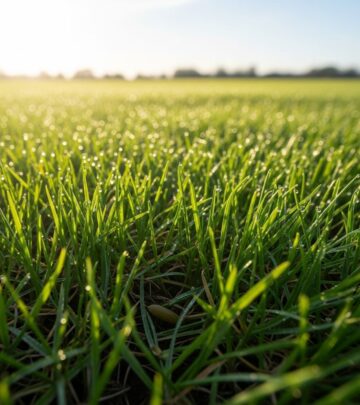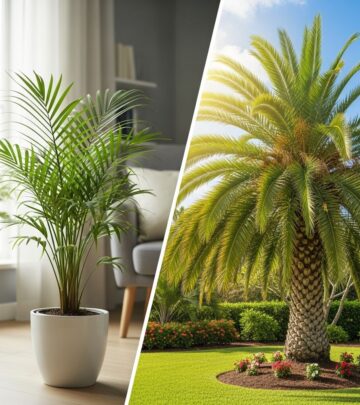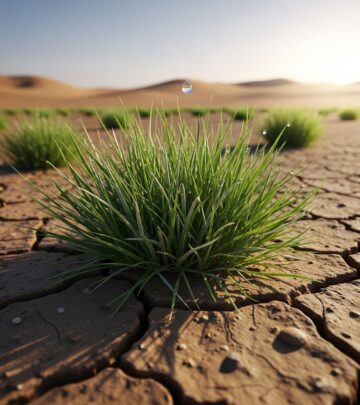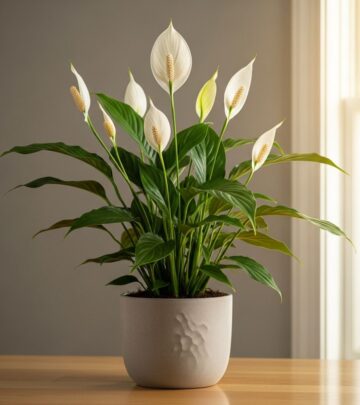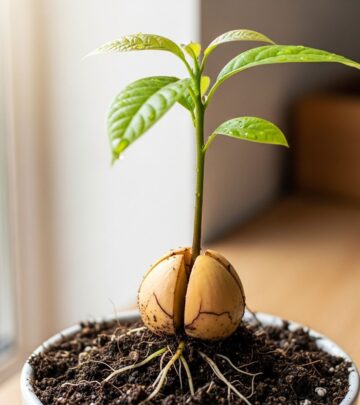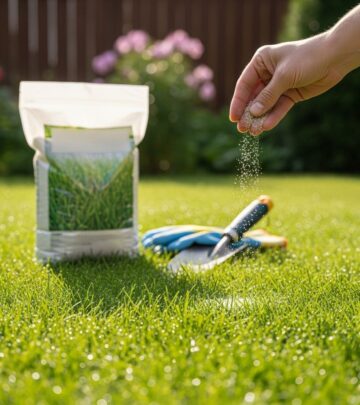Do Rocks Make Good Mulch? Detailed Pros, Cons & Best Uses
A hardscape twist that cuts maintenance without sacrificing garden style.
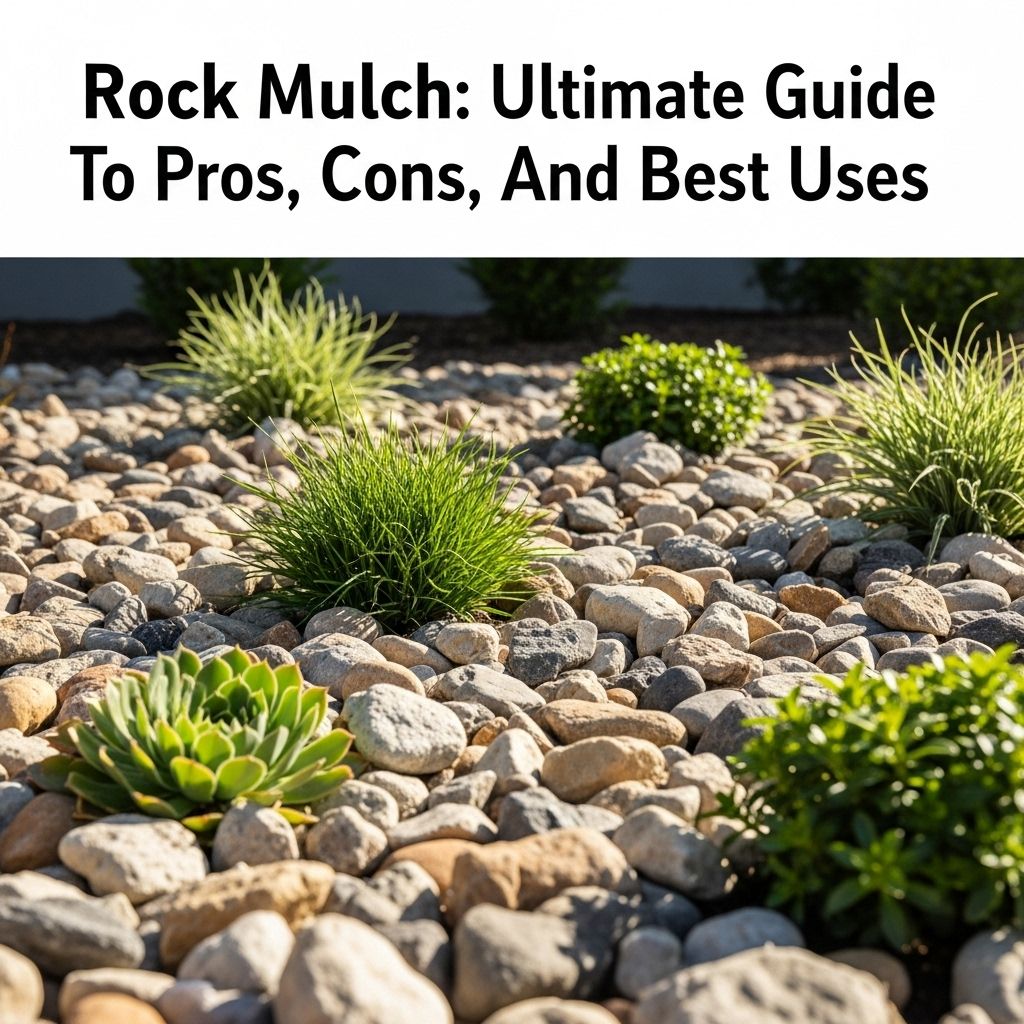
Do Rocks Make Good Mulch?
Rock mulch has surged in popularity, especially with water-saving landscaping trends like xeriscaping. But does it truly live up to its reputation as a practical mulch solution—or are there critical drawbacks gardeners must consider? This in-depth guide explores the upsides, downsides, and the best uses of rocks as mulch, arming you with the knowledge needed for thriving gardens and landscapes.
What Is Rock Mulch?
Unlike traditional organic mulches such as straw, wood chips, or leaves, rock mulch consists of inorganic materials like river stones, gravel, and lava rock. These materials do not decompose or add organic content to the soil, but they provide a sturdy, often decorative cover to garden beds and landscapes.
Popular Uses of Rock Mulch
- Xeriscaping and low-water landscapes
- Suppression of weeds in garden beds
- Decorative borders and accent areas
- Pathways and high-traffic zones
- Drainage beds or French drains
Rocks as Mulch: Functionality and Appeal
Rock mulch gained traction with xeriscaping, a landscaping method focused on water conservation. In these landscapes, rocks often replace grass or large swathes of organic mulch, providing tidy, weed-resistant beds that require minimal upkeep.
Common stone mulch varieties include:
- Pea gravel
- River rock
- Crushed granite
- Lava rock
These stones can be spread as a top layer to smother weeds while allowing water to pass down to the soil. Their aesthetic appeal, variety in size and color, and suitability for modern landscape design fuel their popularity.
Is Rock Mulch Okay for Gardens?
The answer is nuanced: rock mulch can be highly effective in certain situations but may cause issues in others. Success often depends on garden goals, climate, and the types of plants selected.
Benefits of Rock Mulch
- Excellent weed suppression: Stone mulch creates a hostile surface for most weed seeds, preventing germination or making new weeds easy to spot and pull.
- Low maintenance: Unlike organic mulches, rock mulch never needs replenishing and resists decomposition, reducing the time and cost for ongoing upkeep.
- Superior drainage: Rocks allow water to pass freely, making them ideal for plants that dislike ‘wet feet’ or for areas prone to heavy rain.
- Durability: Storms, wind, and heavy rains do not easily shift rock mulch, helping to anchor soil and reduce erosion in exposed areas.
- Prevents soil erosion: The weight of rocks helps keep soil in place on slopes and during torrential downpours.
- Withstands foot traffic: Heavy-use paths benefit from rock mulch, which holds up far longer than bark or straw.
- Appeals to modern aesthetics: Wide color and size selection allows for tailored landscape design.
- Radiates heat for plant warmth: Rock mulch absorbs heat by day and radiates it at night, beneficial for heat-loving plants (such as lavender).
Table: Rock Mulch vs. Organic Mulch
| Characteristic | Rock Mulch | Organic Mulch |
|---|---|---|
| Weed Suppression | High (if weed barrier used) | High (with sufficient depth) |
| Moisture Retention | Low | High |
| Soil Improvement | None | Excellent |
| Maintenance | Minimal (occasional cleaning) | Seasonal replenishment |
| Cost (Initial) | High | Low–Medium |
| Heat Reflection | High (can be a risk) | Low |
| Durability | Decades | Months–Years |
Drawbacks of Rock Mulch
- No organic matter for soil: Rocks do not decompose; they add no nutrients to the soil, and earthworm populations may decline without organic debris.
- Poor moisture retention: Rocks hold little or no water, which can dry out the soil beneath, potentially stressing many plant types.
- Soil overheating: By absorbing and radiating heat, rock mulch can overheat roots and surrounding soil—deadly for moisture-loving or shade-inclined species.
- Cost and labor: High up-front materials and labor costs, especially compared to locally-sourced organic mulch.
- May collect debris: Leaves, sticks, and plant material accumulate between stones and require regular cleaning to prevent weed growth and maintain appearance.
- Difficult removal: Removing or changing rock mulch beds is very labor-intensive once in place.
- Salt and pH issues: Some rocks (like limestone) can leach salts or change soil pH, affecting plant health.
- Potential for compaction: Over time, rocks can compact soil below, especially if not installed on a suitable base.
Where Does Rock Mulch Excel?
Rock mulch shines in settings where water conservation or low upkeep is paramount. Common applications include:
- Desert and xeriscaped gardens: Where rainfall is sporadic, and a natural rocky aesthetic fits the local ecology.
- Paths and walkways: Provides durability and prevents muddy areas after rain.
- Foundation beds or borders: Near structures, rocks help keep the area clean and free of termites attracted to wood mulch.
- Plantings of drought-tolerant or heat-loving species: Mediterranean herbs, succulents, and cacti thrive with gravel mulch.
- Sloped or erosion-prone sites: Where anchoring soil is crucial to prevent washouts.
Pitfalls and Common Mistakes
- Choosing the wrong plants: Many traditional perennials, vegetables, and trees prefer moist, organically-rich soil. These will often struggle with rock mulch.
- Omitting a weed barrier: Without landscape fabric, tenacious weeds and grass can push through, making upkeep challenging.
- Ignoring site conditions: Using rock mulch in shady, cool, or clay-heavy gardens usually leads to poor performance and unhappy plants.
- Skipping edging: Rocks easily migrate to lawns and paved areas without proper physical barriers, creating maintenance headaches.
How to Install Rock Mulch Properly
- Prepare the soil: Remove weeds and debris before installing.
- Add a weed barrier: Landscape fabric helps block persistent weeds and provides easier rock removal if ever needed.
- Edge the area: Install metal, plastic, or stone edging to contain rocks.
- Spread the rock mulch: Aim for a 2–3 inch layer—enough to cover soil completely but not too thick to hinder water flow.
- Maintain yearly: Pick out leaf litter, check for migrating rocks, and top up sparse patches.
Best Plants for Rock Mulch Beds
Success with rock mulch depends heavily on choosing the right plants. Ideal candidates include:
- Lavender
- Rosemary
- Russian sage
- Yucca
- Cacti and succulents
- Various ornamental grasses
- Sedum and stonecrop
These species can handle dry conditions, reflected sunlight, and occasional heat spikes.
When to Choose Organic Mulch Instead
- Vegetable gardens: Organic mulches provide nutrients and keep soils moist, boosting yields.
- Treed areas: Bark or leaf mulch mirrors the natural forest floor, supporting soil health and root growth.
- Annual flower beds: Plants that need cool, rich soils respond better to organic matter.
- Areas requiring soil improvement: Only organic mulch bolsters soil microbes, worms, and fertility over time.
Tips for Success with Rock Mulch
- Pair with drought-tolerant or native plants only.
- Always use a weed barrier fabric under rocks for easier maintenance and to minimize soil compaction.
- Monitor soil moisture the first year and water new plants more frequently, especially on hot, sunny sites.
- Edge rock beds to prevent rock migration.
- Regularly remove leaf litter to prevent organic buildup and future weeds.
Frequently Asked Questions
Does rock mulch kill the soil?
No, but it does not contribute nutrients. Over time, soil may become depleted or compacted without organic matter and may require amendments if you change your garden’s style or plants.
Is rock mulch bad for all plants?
Rock mulch is not suitable for moisture-loving plants or those that rely on nutrient-rich soils. For drought-tolerant, sun-loving species, it can be ideal.
How do I prevent weeds in rock mulch beds?
Install a sturdy landscape fabric under your rock layer and promptly remove any windblown or bird-dropped weeds that sprout between stones.
Can I switch from rock mulch back to organic mulch?
Yes, but removing rocks can be a labor-intensive job. Ensure you fully remove rocks, fabric, and leftover debris before adding compost or organic mulch to restore soil quality.
Should I ever use rocks in vegetable gardens?
Rock mulch is rarely suitable for vegetables—most require moisture retention and added soil nutrients. Stick with straw, compost, or leaf mulch for edibles.
Final Thoughts
Rock mulch offers long-lasting weed suppression, superior drainage, and aesthetic appeal—but only for the right plantings and situations. For moisture-hungry or nutrient-demanding plants, organic mulch is the clear winner. Evaluate your climate, plant palette, maintenance preferences, and long-term garden goals before investing in rocks as mulch.
References
Read full bio of Shinta

